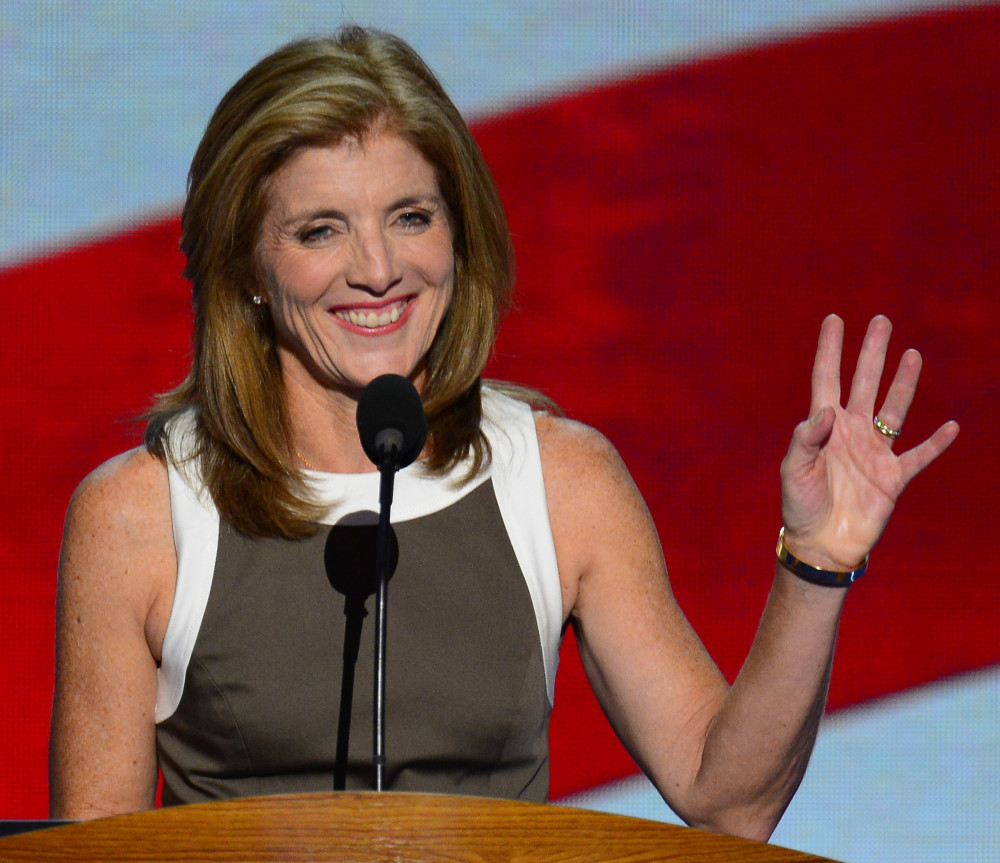By Seth Robson
Stars and Stripes.
YOKOTA AIR BASE, Japan
As the first female U.S. ambassador to Japan, Caroline Kennedy says she feels a duty to set the standard for the ladies who will follow in her footsteps.
Out of 149 diplomatic missions in Tokyo, only 15 are headed by women, Kennedy told a gathering largely made up of American and Japanese women at the Yokota Enlisted Club Friday.
Kennedy, who arrived in Japan in November, was speaking at a Women’s History Month event that focused on the progress made by women in the U.S. and Japanese militaries.
“As the first woman to serve as U.S. ambassador to Japan, people are watching me,” she said. “If I screw it up not only will it reflect on me, it will hurt the chances of future women.”
Women can perform 95 percent of jobs in the U.S. military, but they are still only 15 percent of the active-duty force, said Kennedy, the daughter of former President John F. Kennedy.
“Recent times have brought far-reaching change for women in the military,” she said. “This month, 33,000 positions previously closed to women will open.”
Women serving today are role models for those who will protect America in future, she said.
“You are providing inspiration for millions of little girls who will serve after you and because of you,” she told the female servicemembers in the audience.
Kennedy highlighted the efforts of servicemembers such as Capt. Heidi Pallister, who serves with the 374th Operations Support Squadron at Yokota. Pallister deployed numerous times to Afghanistan, Iraq and Africa and received the Combat Action Medal for helping evade direct enemy fire on one mission.
Capt. Dominique Haig recently led Yokota’s humanitarian response to one of the strongest typhoon’s ever recorded — Typhoon Haiyan — in The Philippines. And Senior Master Sergeant Adaly Lightsey, one of Yokota’s highest-ranking enlisted females, recently returned from a deployment to Afghanistan where she led remotely piloted aircraft personnel and governed $333 million in surveillance assets, Kennedy said.
The women at Yokota also heard about the progress of their sisters in the Japanese military.
Maj. Gen. Keiko Hashiata, a retired Japan Air Self Defense Force general, said the first women to serve in Japan 40 years ago were confined to desk jobs.
“Women with inspirations to become pilots and maintainers were disappointed or frustrated,” Hashiata said.
Today there are much more opportunities although some positions, such as fighter pilots are still a male preserve in Japan, Hashiata said.
“I’m hoping that in the very near future in the JASDF we are going to see female pilots,” she said.
Chiaki Mukai, the first Japanese woman to enter space, was in the audience.
“I watched her launch on the (space) shuttle many years ago,” Kennedy said.
After the speeches, civilian employee Karen Bradley, recalled impact that the assassination of President Kennedy had on them when they were young.
“She has suffered a lot of tragedy with her family but she’s a great example,” Bradley said of Ambassador Kennedy. “She has been a positive role model for American women.”














































































































































































































































































































































































